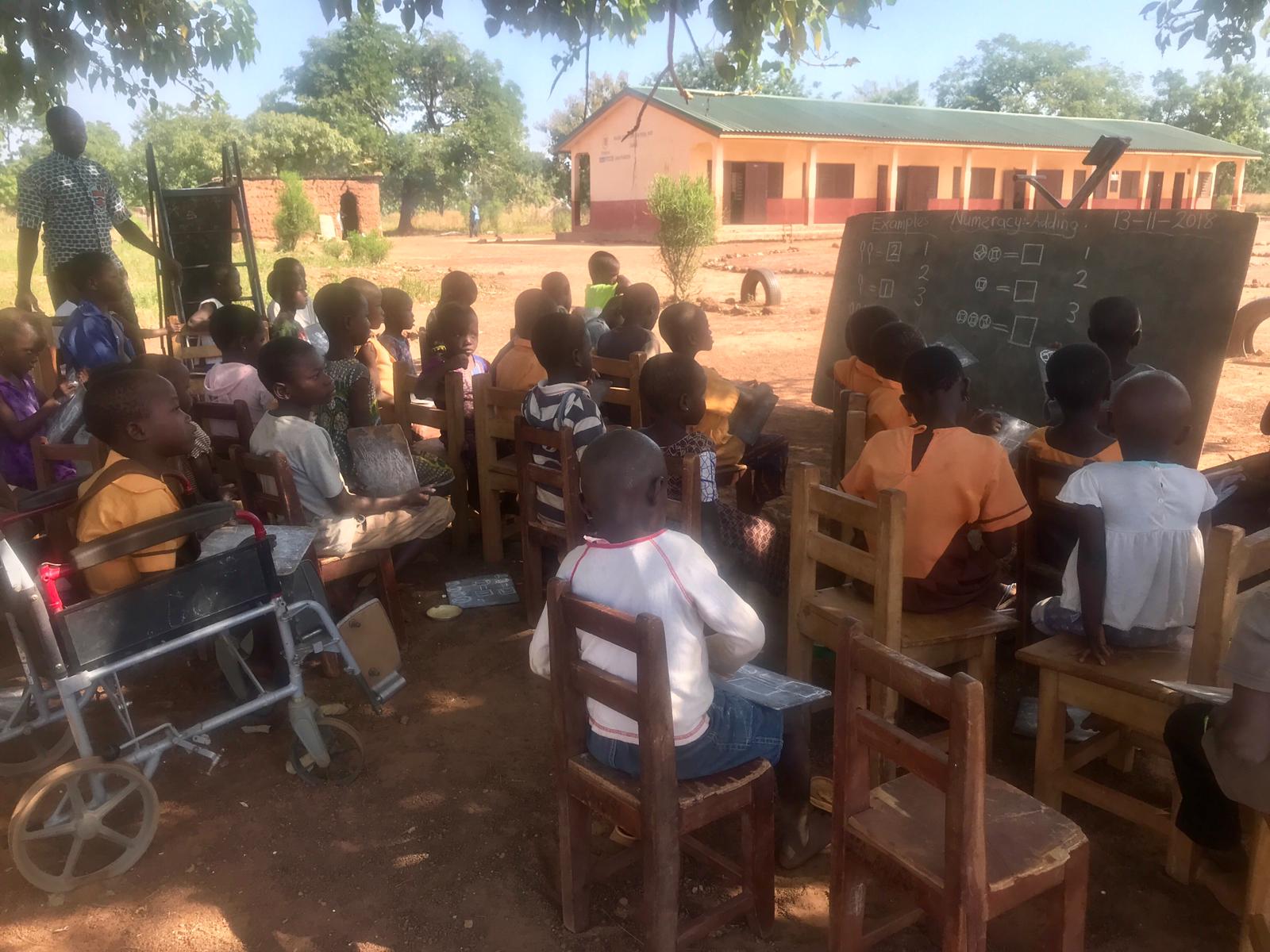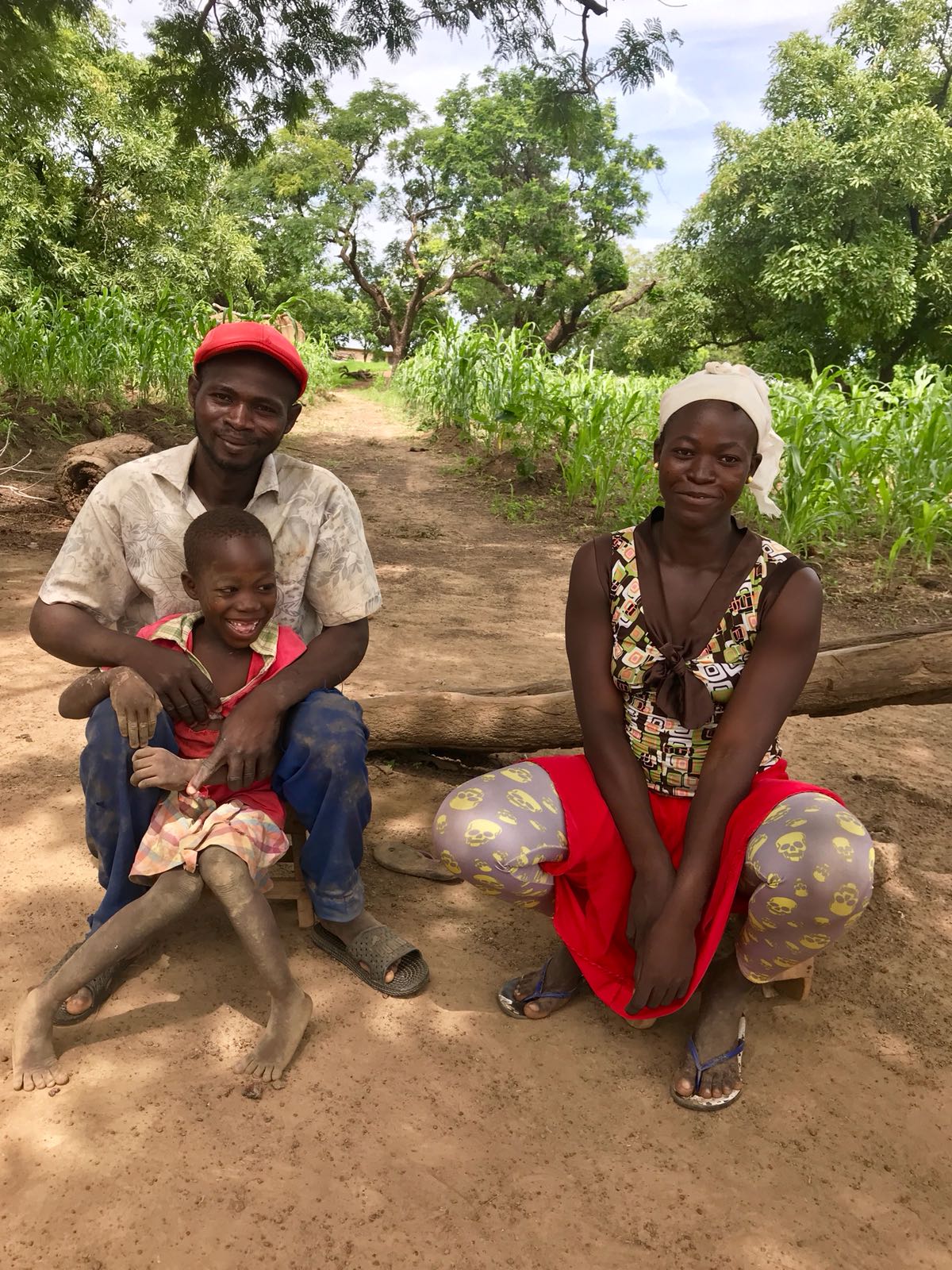 Paulina is now 8 years old and living with special needs. She is one amongst the many beneficiaries of ATE that was sent into main stream education in 2018. Just like her peers, she was also enjoying some of the interventions until the recent coronavirus menace. Her parents lamented how difficult they are going through with their disabled child now that almost everything is at a standstill.
Paulina is now 8 years old and living with special needs. She is one amongst the many beneficiaries of ATE that was sent into main stream education in 2018. Just like her peers, she was also enjoying some of the interventions until the recent coronavirus menace. Her parents lamented how difficult they are going through with their disabled child now that almost everything is at a standstill.
The coronavirus pandemic has disrupted the life of every child most especially children living with special needs in Lawra in the Upper West Region of Ghana. It is not only a horrific public health emergency, but also a challenge our society and our economy have not seen in years.
Families with children not receiving free school meals are also likely to struggle with the cost of food, especially given predicted losses of income during the coronavirus outbreak and overall increase in cost of living as children are at home. While we understand the need for school closures in the interest of public health, it is important to highlight how schools often provide vital support to families living with special needs, enabling access to peer group support, receive advice and advocacy and school authority care, as well as providing free school meals for some children and healthcare support and basic provisions.
Many parents are working on zero-hours contracts, insecure or low wage jobs and are therefore at an increased risk of losing their livelihood in the current pandemic, particularly with schools and nurseries closing indefinitely. We know from our services and other research that many of these families are single parent households, primarily from Upper West Region, and Northern ethnic minority backgrounds, who will be unable to work following their general backgrounds and that of childcare responsibilities.
This will further increase financial strain on these parents through a combination of a drastically reduced or no incomes and increased day-to-day costs as children remain at home. We again know from our work that there appears to be a disproportionately high number of families whose children have special educational needs and require additional support from supporting agencies, who are all likely to be reducing services during this period. This is likely to lead to an increase in families using their smaller local food banks, similar to rises in the school holidays. However, food shortages and panic buying during the coronavirus outbreak have put additional pressures on the local food banks. Precautions around social distancing will also mean reduced access to many interventions. Therefore, the vulnerable families will also desperately need alternative means to make ends meet.
We want to be able to support our SNAP families through the crisis, and help them to Rebuild for Better, for the future. A £50 donation would fund a SNAP family grant – where we work with the family on a case by case basis, to realise whatever intervention would help that particular household. An example could be starting a small business, in which ATE would support with group training and mentoring, empowering the SNAP mother or caregiver.
Support our Rebuild Campaign here
Written by Kaamil Issahaku, SNAP Project Leader

